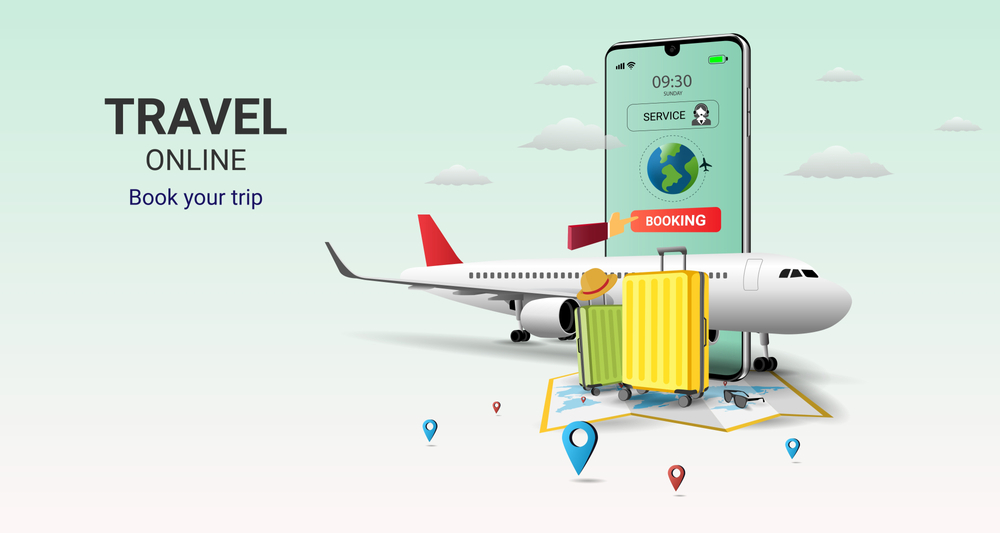
Travel Software Development Company
Travel Software Development: Enhancing
Efficiency and Streamlining Operations in the Travel Industry
In the fast-paced and competitive
travel industry, having efficient and innovative software solutions is crucial
for travel agencies, tour operators, and travel technology providers to stay
ahead. Travel software development involves creating custom software
applications that cater to the unique needs of the travel industry, such as
travel management systems, booking engines, travel portals, mobile apps, and
more. These solutions streamline operations, automate processes, and enhance
the overall customer experience. In this article, we will explore the benefits
and key aspects of travel software development.
Benefits of Travel Software Development:
1.
Streamlined Operations: Travel software development aims to
streamline various operations within the travel industry. It enables automation
of tasks such as booking management, itinerary creation, invoicing, and
reporting, reducing manual efforts and improving operational efficiency. This
leads to time savings, reduced errors, and increased productivity.
2.
Enhanced Customer Experience: Travel software solutions empower travel
businesses to provide a seamless and personalized experience to their
customers. User-friendly interfaces, intuitive navigation, and advanced search
functionalities enable customers to easily explore and book travel services.
Personalization features like recommended destinations, tailored itineraries,
and travel preferences contribute to a more personalized and engaging customer
experience.
3.
Efficient Inventory Management: Travel software applications assist
in managing inventory effectively. They provide real-time updates on flight
availability, hotel rooms, car rentals, and other travel services, allowing
businesses to optimize inventory utilization. Automated inventory management
helps prevent overbooking, minimize cancellations, and maximize revenue
opportunities.
4.
Integration with Third-Party APIs: Travel software development often
involves integrating with various third-party APIs such as global distribution
systems (GDS), hotel aggregators, flight aggregators, and payment gateways.
These integrations provide access to vast inventories, enable real-time data
synchronization, and facilitate secure payment processing. Integration with
APIs enhances the scope and capabilities of travel software solutions.
5.
Data Analytics and Reporting: Travel software solutions offer robust data
analytics and reporting capabilities. They collect and analyze data related to
bookings, customer behavior, revenue, and other key metrics. This valuable
information helps businesses gain insights into market trends, customer
preferences, and performance analysis, enabling them to make data-driven decisions
and devise effective marketing strategies.
Key Aspects of Travel Software
Development:
1.
Customization: Travel software solutions should be tailored to meet the
specific requirements of travel businesses. Customization allows businesses to
incorporate their unique branding, business rules, pricing structures, and
workflows into the software application. This ensures that the software aligns
perfectly with their operational processes and enhances their competitive
advantage.
2.
User Experience (UX) Design: Travel software development emphasizes the
importance of a seamless and intuitive user experience. A well-designed user
interface with clear navigation, search capabilities, and visually appealing
layouts enhances the usability and engagement of the software application.
Intuitive user experience design contributes to higher user satisfaction and
increased adoption rates.
3.
Security and Compliance: Travel software solutions handle sensitive
customer data, including personal information and payment details. Therefore,
robust security measures and compliance with industry standards such as PCI DSS
(Payment Card Industry Data Security Standard) are crucial. Travel software
development focuses on implementing encryption, secure connections, and data protection
mechanisms to ensure the confidentiality and integrity of customer data.
4.
Scalability and Performance: As travel businesses grow, their software
applications need to scale accordingly. Travel software development takes
scalability into account, allowing businesses to handle increased traffic,
accommodate more users, and seamlessly integrate new features or modules.
Performance optimization techniques are employed to ensure fast response times,
minimal downtime, and smooth system operations even under heavy loads.
5.
Ongoing Support and Maintenance: Travel software development is an
ongoing process that involves continuous support and maintenance. It is
essential to have a reliable support system in place to address any technical

.jpeg)



















